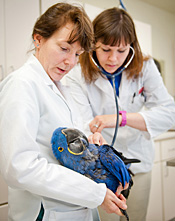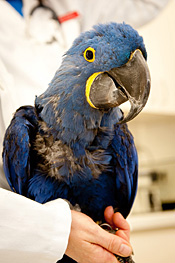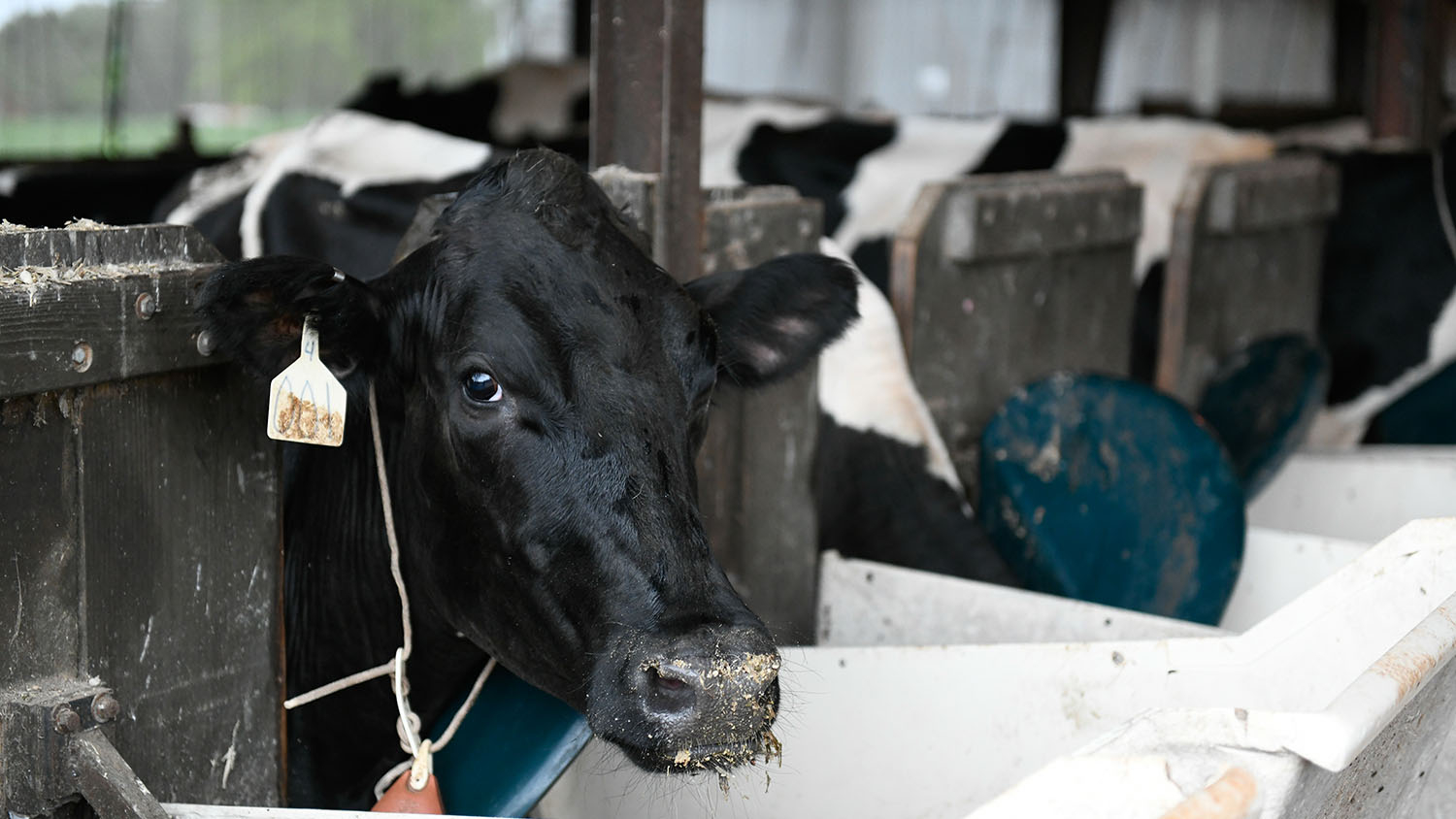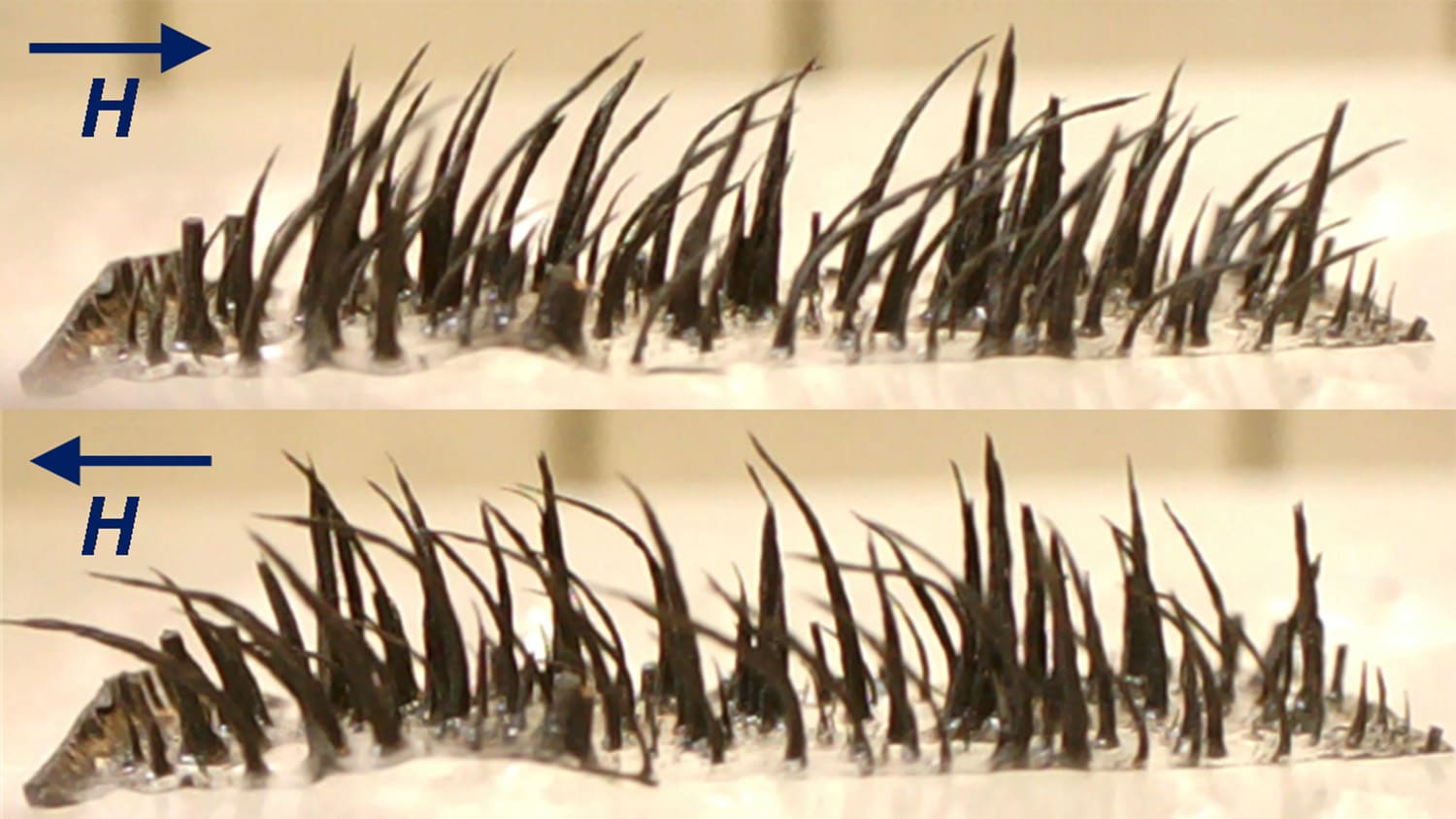The Doctor’s In for Exotic Pets
When Cary Powell notices his hyacinth macaw is lying in its cage, he isn’t fazed. “Macaws,” he says, “can be lethargic sometimes.” But when his exotic pet bird, (named “Gracie,”) refuses breakfast, he knows something is wrong. Initially, Powell takes Gracie to his primary veterinarian. When Gracie starts vomiting he calls NC State’s new Exotic Animal Medicine Service for some specialized love and care.
An hour later, Gracie is ushered in. Laurel Degernes, associate professor of avian medicine along with her team (Lynsey Rosen, exotic clinical veterinarian and Vanessa Grunkemeyer, avian and exotic clinical veterinarian and four observing students) carefully perform diagnostic tests — everything from blood work and radiographs to infectious disease screening.

With the tests complete Degernes, a leading avian expert, comforts the bird, avoiding its massive beak. With her quiet, soothing words, the squawking subsides. Powell feels relieved. “I know she’ll receive premium care here.”
Brisk business expected
NC State’s Exotic Animal Medicine Service officially opened on Monday. The new service at the Veterinary Health and Wellness Center sees primary care and referral cases including medical and surgical care for caged animals such as parrots, backyard chickens and ducks, small mammals like ferrets, hedgehogs and rabbits, as well as non-venomous reptiles and amphibians. Wildlife, venomous reptiles, non-human primates or large carnivores are the only species that will be turned away.

Grunkemeyer and Rosen, two lead clinicians on staff, expect that once word gets out things will be busy, in part because the service is reasonably priced –– around $65 for a regular exam. What’s more, for established clients of the vet school, this is the only after-hours emergency service for exotic animals in the region and few veterinarians in Raleigh, or elsewhere, are trained to work with exotic species. “Here we look at what we learned from dogs and cats and expand it to our exotic species with specialized knowledge of their anatomy and physiology,” Grunkemeyer says. “Our service will help exotic pet owners and offer essential training for our students.”
A popular industry
Exotic pets are also popular. The 2011- 2012 National Pet Owners Survey from the American Pets Products Association APPA, reported that fresh water fish are the most popular pets currently at 151.1 million. American pet owners own 16.2 million birds and 13 million reptiles.
Gracie was one of two patients on Monday. The first was a domestic rat named “Bleu” who needed a mammary tumor removed. Powell’s macaw is improving after antibiotics — but he’s so glad he brought his pet in. “NC State avian veterinarians are the best in the nation. Raleigh is lucky having this service here.”
- Categories:


